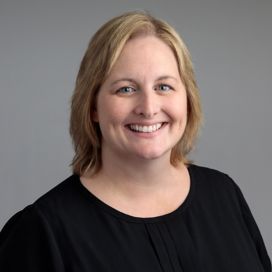Tribal Health Profession Opportunity Grants (HPOG) 2.0 Evaluation

Problem
The Administration for Children and Families needed a strengths-based and collaborative evaluation of HPOG 2.0.
In 2015, the Administration for Children and Families awarded a second round of five-year Health Profession Opportunity Grants (HPOG 2.0) to 32 grantees nationwide, including five tribal organizations. The goal of the HPOG 2.0 program is to provide high-quality education, training, and services to Temporary Assistance for Needy Families (TANF) recipients and low-income individuals that lead to well-paying and in-demand occupations in the health care field. The authorizing legislation for HPOG called for a comprehensive evaluation of the demonstration projects funded under this program, resulting in national and tribal evaluations. Abt Associates conducted the national HPOG 2.0 evaluation. NORC at the University of Chicago conducted an implementation and outcome evaluation of the Tribal HPOG 2.0 Program. Our evaluation provided an in-depth assessment of the programs administered by tribal colleges, health and human services organizations, and a tribal government.
Solution
NORC balanced scientific methods with culturally appropriate approaches.
NORC collaborated with the grantees and subject matter experts to design a rigorous evaluation. NORC worked closely with the grantees to develop relationships with program staff, implement an approach that respected tribal research protocols, create data collection protocols responsive to the grantees’ questions and sensitive to participants’ experience, and carry out data collection, analysis, and interpretation.
The research questions focused on the programs’ structure, processes, and outcomes and examined change over time, including the effect of the COVID-19 pandemic. The evaluation used a mixed-methods approach involving the collection, analysis, and integration of qualitative and quantitative data. Qualitative data included focus groups with participants and interviews with program staff, instructors, partners, employers, and participants. Quantitative data came from the HPOG 2.0 Participant Accomplishment and Grant Evaluation System, a management information system used by all HPOG 2.0 grantees to record participant characteristics and outcomes.
Result
Grantees created pathways for participant success.
Grantees used a career pathways framework to provide postsecondary training to participants. All grantees implemented a career pathway in nursing, with opportunities for entry-level training and employment as a certified nursing assistant and mid-to-higher-level opportunities as a licensed practical nurse (LPN) or registered nurse (RN). They formed partnerships with educational institutions and workforce development organizations to deliver training across their service areas. They provided support to meet participant needs, such as tutoring, transportation, food assistance, and job search assistance.
Tribal HPOG 2.0 participants were typically low-income women in their 20s and 30s, many with dependent children. Most participants (61 percent) identified as American Indian/Alaska Native. Many participants (69 percent) completed at least one health care training. Forty-two percent of participants obtained employment after enrollment, with most working as nursing assistants, medication technicians/aides, LPNs, and RNs. Many participants shared that they realized their education and employment goals through HPOG 2.0.
Project Point of Contact
Related Tags
Project Leads
-
Carol Hafford
Senior FellowProject Director -
Kate Fromknecht
Senior Research DirectorSenior Staff -
Alana D. Knudson
DirectorSenior Staff -
Michael Meit
Senior FellowSenior Staff












